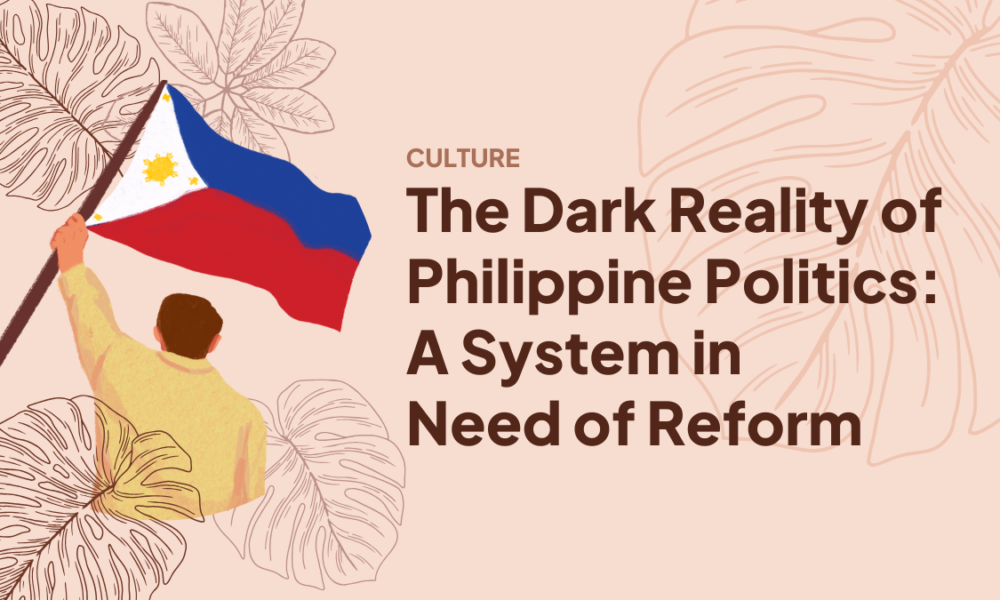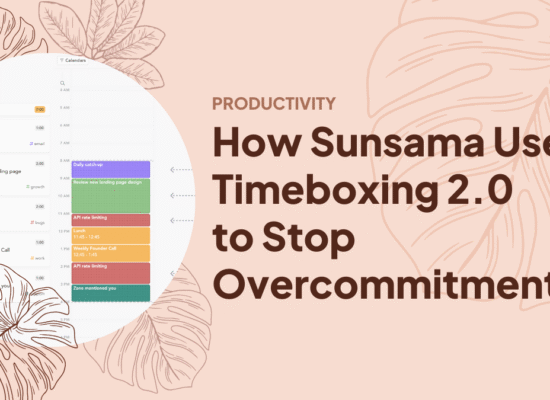Table of Contents
- The Dynasty Dilemma
- The Economics of Corruption
- Elections and the Price of Power
- Promises vs. Platforms: The Missing Substance
- The Media Manipulation Machinery
- Impunity and Weak Accountability
- The Human Cost
- Informed Voting: The Cornerstone of Democratic Reform
- Reform Initiatives and Glimmers of Hope
- The Path Forward
- Beyond Research
Power corrupts minds. Money buys loyalty. Truth suffers silently in the shadows of Philippine politics, where the game is played not for public service but for personal gain. The political landscape of this archipelagic nation reveals a disturbing pattern of corruption, dynasticism, and impunity that continues to shape its democratic journey.
For decades, the Philippines has struggled with a political system that often serves the few at the expense of the many. Behind the colorful campaign posters and passionate speeches lies a complex web of patronage, vote-buying, and systemic corruption that undermines genuine democratic processes. This investigation examines the research findings that illuminate the darker corners of Philippine politics and what they reveal about the challenges facing the nation’s governance.
The Dynasty Dilemma
Political dynasties remain one of the most entrenched features of Philippine politics. Research from the Ateneo School of Government reveals that between 70-90% of Congress is composed of politicians from dynastic families, with many provinces effectively controlled by a single family for generations. These dynasties function as political monopolies, concentrating power and resources within family networks rather than distributing them based on merit or public interest.
The constitution explicitly states that “the State shall guarantee equal access to opportunities for public service and prohibit political dynasties as may be defined by law.” Yet the absence of enabling legislation has allowed dynasties to flourish unchecked. The irony is unmistakable. The very lawmakers who would need to pass anti-dynasty laws are themselves the primary beneficiaries of the status quo.
Studies show that provinces dominated by political dynasties typically have higher poverty rates, lower human development indices, and greater income inequality. The correlation between dynastic politics and underdevelopment presents a troubling picture of how political monopolies affect governance outcomes.
The Economics of Corruption
Corruption in the Philippines carries a staggering economic cost. According to estimates from the Office of the Ombudsman, the country loses approximately PHP 700 billion (roughly USD 12.7 billion) annually to corruption. This represents nearly 20% of the national budget, funds that could otherwise be directed toward education, healthcare, and infrastructure development.
The corruption spectrum ranges from petty bribery at local government offices to massive scandals involving billions of pesos. The infamous Pork Barrel Scam, which implicated numerous lawmakers in the misuse of Priority Development Assistance Funds, illustrated how public resources could be systematically diverted through ghost projects and fake non-governmental organizations.
Research from Transparency International consistently ranks the Philippines poorly in its Corruption Perceptions Index. The 2022 report placed the country at 116th out of 180 countries, with a score of 33 out of 100, indicating a serious corruption problem. More troubling is the minimal improvement in these scores over the past decade, suggesting that anti-corruption efforts have yielded limited results.
Elections and the Price of Power
Philippine elections reveal the commodification of democracy. A study by the Philippine Center for Investigative Journalism found that running for a national position can cost between PHP 500 million to PHP 1 billion (approximately USD 9-18 million). Local positions are less expensive but still require substantial resources beyond the reach of ordinary citizens.
Vote-buying remains pervasive despite being illegal. Research conducted during the 2019 midterm elections indicated that 30-40% of voters in surveyed areas reported being offered money in exchange for their votes. The going rate varies by region, typically ranging from PHP 300 to PHP 1,000 per vote, with higher amounts in closely contested races.
This commodification creates a troubling cycle. Candidates invest enormous sums to win office, then often seek to recoup these “investments” once in power. Public service becomes secondary to recovering campaign expenses and building war chests for future electoral battles.
Promises vs. Platforms: The Missing Substance
In Philippine politics, campaign season typically brings grand promises rather than concrete platforms. Candidates often emphasize personality and emotional appeal over detailed policy proposals. This focus on promises rather than substantive platforms makes it difficult for voters to hold officials accountable once elected.
When politicians campaign primarily on vague promises of change or prosperity without specifying implementation plans, the electorate lacks clear metrics to evaluate performance. This absence of platform-based politics contributes to a cycle where charisma and family name recognition often triumph over competence and policy expertise.
The Media Manipulation Machinery
Control of information represents another dimension of political manipulation. Research from the University of the Philippines College of Mass Communication documents the increasing sophistication of disinformation campaigns in Philippine politics. The rise of social media has created new avenues for spreading false narratives, character assassination, and historical revisionism.
During election periods, candidates employ “troll farms” to amplify messages, attack opponents, and manipulate online discourse. These operations can involve hundreds of fake accounts managed by operators who create the illusion of widespread support or opposition. The 2022 elections saw unprecedented levels of coordinated inauthentic behavior online, with researchers identifying networks of accounts pushing identical narratives simultaneously.
Traditional media ownership presents additional concerns. Many major media outlets are controlled by political families or business interests with political connections. This concentration of media ownership enables selective coverage that can favor certain political actors while marginalizing others.
Impunity and Weak Accountability
Perhaps the most troubling aspect of Philippine politics is the culture of impunity. Data from the Department of Justice shows that conviction rates for corruption cases remain low, with many investigations stalling or being dismissed before reaching conclusion. High-profile corruption cases often drag on for years, sometimes decades, with few resulting in meaningful consequences for the accused.
The weakness of accountability institutions compounds this problem. While the Philippines has formal anti-corruption bodies like the Office of the Ombudsman and the Sandiganbayan (anti-graft court), these institutions often lack sufficient resources, independence, and authority to effectively combat entrenched corruption.
Research from the University of the Philippines National College of Public Administration and Governance highlights how political interference undermines these accountability mechanisms. Appointments to key positions are often politicized, budgets can be restricted as punishment for aggressive investigations, and procedural obstacles can be created to impede corruption cases against powerful individuals.
The Human Cost
Beyond statistics and systemic analysis lies the human impact of political corruption. When public funds are diverted, it is the ordinary Filipino who suffers from inadequate healthcare, substandard education, and crumbling infrastructure. Research from the Philippine Institute for Development Studies estimates that corruption increases the cost of public services by 20-30%, effectively functioning as a hidden tax on citizens.
Corruption also erodes public trust in institutions. Survey data from Social Weather Stations shows consistently low trust ratings for government institutions perceived as corrupt. This erosion of trust creates a vicious cycle where citizens become cynical about the possibility of reform, leading to disengagement from civic participation.
The most vulnerable segments of society bear the heaviest burden. Studies from the Asian Development Bank demonstrate that corruption disproportionately affects the poor, who lack the resources to pay bribes or access alternative services when public systems fail.
Informed Voting: The Cornerstone of Democratic Reform
The path toward meaningful change in Philippine politics begins with informed voting. When citizens vote based on careful evaluation of candidates’ track records, policy platforms, and demonstrated integrity rather than personality or family name, the dynamics of political competition can shift.
Informed voting requires access to accurate information about candidates, understanding of policy issues, and critical evaluation of campaign promises. Unfortunately, information asymmetry, limited civic education, and the overwhelming influence of money in politics create significant barriers to truly informed electoral decisions.
Reform Initiatives and Glimmers of Hope
Despite this bleak landscape, reform efforts continue. Civil society organizations have become increasingly sophisticated in monitoring government activities and advocating for transparency. The Right to Information movement has pushed for greater access to government data, while citizen watchdog groups monitor public spending and service delivery.
Technology offers new tools for accountability. Open government data initiatives, digital platforms for reporting corruption, and blockchain applications for transparent procurement represent innovative approaches to strengthening governance. Research from the Ateneo School of Government shows that localities implementing transparency portals and participatory budgeting experience measurable reductions in corruption indicators.
International partnerships have also strengthened domestic reform efforts. Programs supported by development partners have helped build capacity within accountability institutions and civil society organizations. These collaborations have introduced best practices from other countries that have successfully reduced corruption.
The Path Forward
Research findings point to several critical reforms needed to address political corruption in the Philippines:
First, campaign finance reform represents an essential step toward reducing the influence of money in politics. Stricter limits on campaign spending, enhanced disclosure requirements, and effective enforcement mechanisms could help level the playing field and reduce the pressure to “recover” campaign investments through corrupt means.
Second, strengthening accountability institutions requires both greater resources and enhanced independence. The Office of the Ombudsman, Commission on Audit, and judiciary need protection from political interference and sufficient capacity to investigate and prosecute corruption cases regardless of the power of those involved.
Third, electoral reforms that address vote-buying, intimidation, and other forms of manipulation are essential for ensuring that elections truly reflect the will of the people rather than the purchasing power of candidates.
Fourth, media literacy programs and platform accountability measures are needed to combat disinformation and ensure that citizens have access to accurate information when making political choices.
Finally, political dynasty regulation, as mandated by the constitution, remains a necessary step toward breaking monopolies of power and creating more competitive, responsive political systems.
Beyond Research
Data and analysis provide essential insights into the challenges facing Philippine democracy, but addressing these issues ultimately requires political will and citizen engagement. Research findings become meaningful only when they inform action.
The path toward cleaner politics in the Philippines will not be straightforward or quick. Entrenched interests resist reform, and systemic changes require sustained effort across multiple electoral cycles. Yet understanding the nature and extent of the problem represents an essential first step.
By continuing to unmask the realities of dirty politics through rigorous research and fearless reporting, we contribute to the long-term project of building a political system that truly serves the Filipino people. The data points to problems, but also to possibilities. The question remains whether citizens and leaders will summon the collective will to transform these possibilities into reality.
In a nation where political power has too often served the few rather than the many, the most revolutionary act may be insisting that it can be otherwise. Research shows us what is. Civic courage demands we envision and work toward what could be.
Key Takeaways:
- Political dynasties control up to 90% of Congress, creating monopolies of power that correlate with higher poverty rates and inequality.
- The Philippines loses approximately PHP 700 billion annually to corruption, representing nearly 20% of the national budget.
- Informed voting and evaluating promises vs. platforms are essential for breaking the cycle of corruption in Philippine politics.
Frequently Asked Questions
What is the estimated cost of corruption in the Philippines?
According to the Office of the Ombudsman, the Philippines loses approximately PHP 700 billion (roughly USD 12.7 billion) annually to corruption.
How prevalent are political dynasties in Philippine politics?
Research shows that between 70-90% of Congress is composed of politicians from dynastic families, with many provinces controlled by a single family for generations.
How can citizens contribute to political reform in the Philippines?
Citizens can practice informed voting, join civil society organizations monitoring government activities, and advocate for transparency and anti-corruption measures.
Maria is an accomplished digital marketing professional, specializing in content marketing and SEO. She's a neurodivergent who strives to raise awareness, and overcome the stigma that envelopes around mental health.






